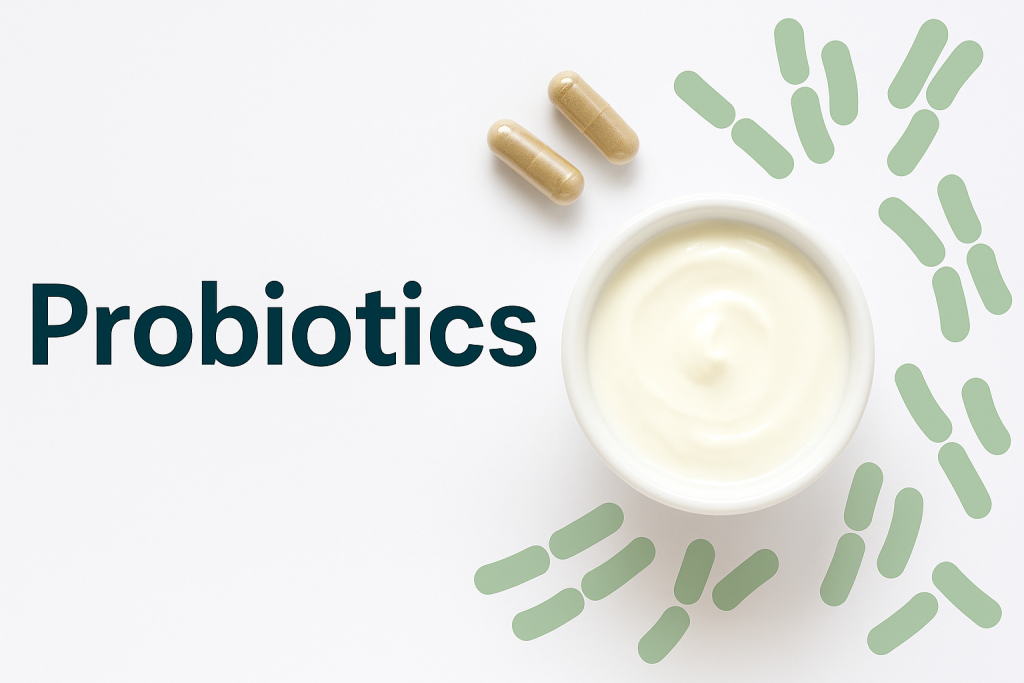Probiotics: Beneficial Bacteria That Support Your Health

What Are Probiotics?
Probiotics are live microorganisms—primarily bacteria and yeasts—that, when consumed in adequate amounts, offer health benefits. They are naturally found in fermented foods and are also available in supplement form. Unlike harmful bacteria, probiotics contribute to the balance and resilience of the gut microbiome.
The most studied probiotic genera include:
- Lactobacillus – known for its role in digestion and lactose breakdown
- Bifidobacterium – commonly found in the intestines, especially in infants
- Saccharomyces boulardii – a probiotic yeast that supports intestinal health
Health Benefits of Probiotics
Probiotics have been the subject of intense scientific research in recent years. In 2025, they continue to be recognized for their ability to:
- Restore gut balance after antibiotic use or digestive distress
- Alleviate symptoms of irritable bowel syndrome (IBS), such as bloating, gas, and irregular bowel movements
- Strengthen the immune response, particularly in the gut-associated lymphoid tissue (GALT)
- Reduce inflammation, both in the digestive tract and systemically
- Support mental health through the gut-brain axis, with evidence suggesting improvements in mood and reduction of anxiety symptoms
Emerging studies in 2025 are also exploring the potential of specific probiotic strains to assist in managing metabolic conditions and autoimmune diseases.
Common Food Sources of Probiotics
Including naturally fermented foods in your diet can help maintain a healthy microbiome. These include:
- Yogurt with live active cultures
- Kefir, a fermented milk drink rich in diverse probiotic strains
- Sauerkraut and kimchi, both fermented vegetables high in lactic acid bacteria
- Miso and tempeh, fermented soy products
- Kombucha, a tea fermented with symbiotic cultures of bacteria and yeast (SCOBY)
Probiotic Supplements: When and Why
In cases where probiotic-rich foods are not consumed regularly, or after antibiotic therapy, supplementation can help restore microbial balance. In 2025, probiotic supplements are more sophisticated than ever—offering multi-strain formulations, strain-specific targeting, and enhanced survivability through advanced encapsulation.
Factors to consider when evaluating a probiotic supplement include:
- The specific strains used (as different strains offer different benefits)
- The viable count at the time of consumption, measured in CFUs (colony-forming units)
- Whether the product includes prebiotics, which feed the probiotic organisms and improve effectiveness
Final Thoughts
Maintaining a healthy gut microbiome is increasingly seen as foundational to overall health. Probiotics—whether from whole foods or supplements—play a key role in supporting digestive function, immunity, and even mental well-being. As research continues to evolve, their integration into daily routines remains a simple yet powerful way to invest in long-term health.




